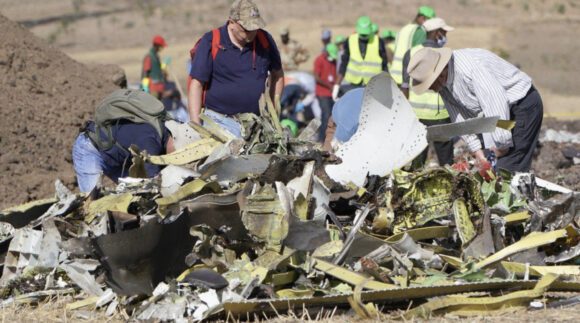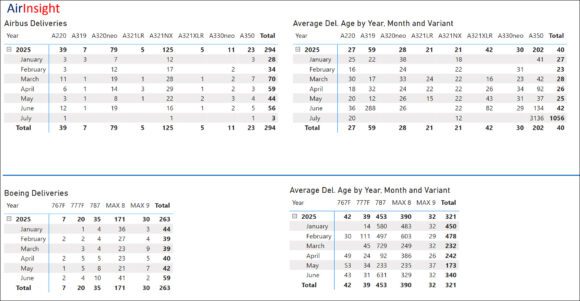
boeing logo
The Problem
Boeing has a big problem. The MAX crisis didn’t create the problem but has certainly highlighted and exacerbated it. What is the problem? Communications or better stated, the lack of communications coming from Seattle or Chicago.
The MAX crisis demonstrated to everyone in aerospace media how poorly Boeing was prepared for the recent crashes. More importantly, Boeing was unprepared for the onslaught of information that started to flow freely after the crashes. The world of knowledgeable individuals who can speak about aircraft is surprisingly large. In the absence of communications from Boeing, subject matter experts, whether highly qualified or not, become media stars overnight. An information vacuum cannot exist in today’s 24-hour news cycle and the Internet. The demand for information is great, and somebody will fill the vacuum.
The fact that Boeing had to clam up about the crashes for legal reasons is well understood. But the lack of transparency about design decisions, how the company made trade-off choices when creating the MAX, and issues related to the certification process left Boeing exposed. Brutally exposed may be a better description given the repeated drip-drip-drip of news stories that leave readers or viewers appalled at Boeing’s decisions and actions. The Seattle Times and New York Times have produced remarkable stories on a regular basis. And there have been equally insightful stories from The Air Current.
100 Years
The thing is Boeing is a 100-year old company. No business gets to be that well established if it is not run well and employs superb people. Boeing has a talent pool that is very deep and wide. They are one of the world’s most admired brands. Or were one of the most admired brands until a few months ago. How did Boeing lose its reputation so fast?
Communications
Here is a lesson for the Boeing leadership. Airbus spends a lot of money once per year inviting the media to an event it calls “Innovation Days”. A week ago, at the most recent event, there were 130 media members from almost every country. Airbus briefed the media on both their products and plans (watch our videos from the event). Airbus provided access to the key leaders so attendees could speak with them and ask questions, with unrestricted Q&As with C-Suite executives who stayed for a substantial period of time.
This event is important to Airbus or they wouldn’t do it. Airbus clearly has an ROI. From the perspective of an attendee, and having attended several, is that the media comes away from the event informed. But more importantly, attendees feel they understand what Airbus is doing.
Airbus, through these events, communicates with the trade and news media. This communication provides attendees with, de minimis, a sympathetic view. If Airbus had suffered the two crashes, we believe the press would not have attacked the company the same way it has Boeing.
The Crisis
Anyone understands that Boeing cannot communicate or discuss the two MAX crashes while they are under investigation. Even Airbus leaders would not discuss this topic, and in fact, were deeply sympathetic to Boeing’s stress. In doing so, Airbus actually helped Boeing, by the way. Because Boeing wasn’t getting any slack when the media attendees spoke among themselves.
Boeing has a lot of non-MAX issues they can discuss. The 777X. The 787 improvements. The case for the NMA (another item where Boeing is losing messaging). By not being more open Boeing has helped create a gap between itself and much of the media. This gap predates the MAX crisis as we noted at the start of this article.
Fix this, please
Boeing can fix this communications gap by closing it. Boeing created the gap and must be the one to close it. Why is this important?
Because the MAX crisis proves the point that Boeing has lost any control of the story. Whatever Boeing does provide now is seen as biased and self-serving – there is little goodwill from the media. When Dennis Muilenburg goes on television for the rare interview, he does not come across as well as he might. Why is that? Because everything he says is now filtered through a non-sympathetic, hyper-critical lens. Follow the social media reaction for confirmation. No brand can afford to ignore social media, not even Boeing.
The MAX crisis has severely damaged the Boeing brand. Even airlines wonder aloud if their passengers will want to fly the MAX again. The first MAX cancellation has been announced. The story would have hardly been worth reporting, after all, it is for ten aircraft out of thousands on order. But anything MAX related becomes page one news. The MAX crisis is symptomatic of what might happen in the future. If the two awful crashes have caused so much brand damage, what happens when or if another Boeing goes down? Remember the immediate media reaction to a Southwest MAX losing an engine during a ferry flight? Just imagine if another MAX were to go down.
Another crisis could do more terrible damage. Aircraft do crash – it happens, despite the best efforts of everyone to prevent them. If another Boeing crashes, nobody is going to easily believe it was “pilot error”. Facts matter less in an age of social media where subject matter experts fill an information void.
Boeing needs to invest in the small army of trade and press media that cover the industry – not just a handful of selectees. This small army provides crucial perspective en masse during a crisis and fills the vacuum with educated views and perspective. These are the people, when suitably briefed, who can explain an event that might otherwise spiral into something far worse.
Views: 3





Too late – at least for the current crisis. Engaging with media now will undoubtedly be viewed cynically; a smarter company would have had its friends in place before it needs them (i.e. the way Airbus does); that way, they get the benefit of the doubt on occasions.
Anyway, I suspect Boeing prefers to spend its time and money on political lobbying.